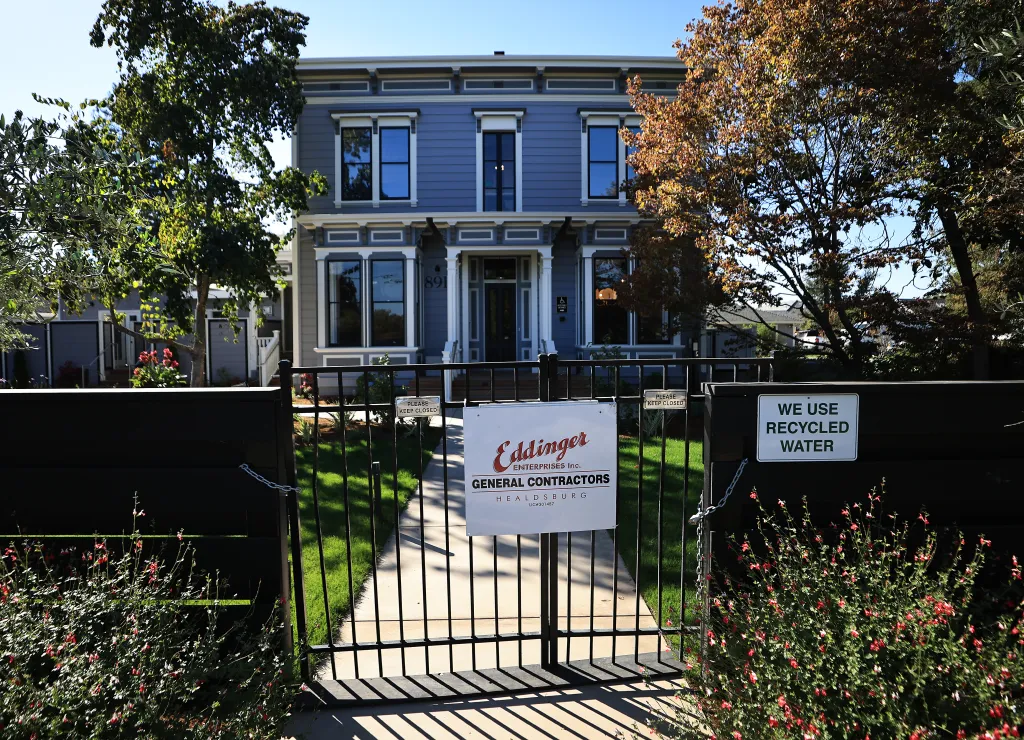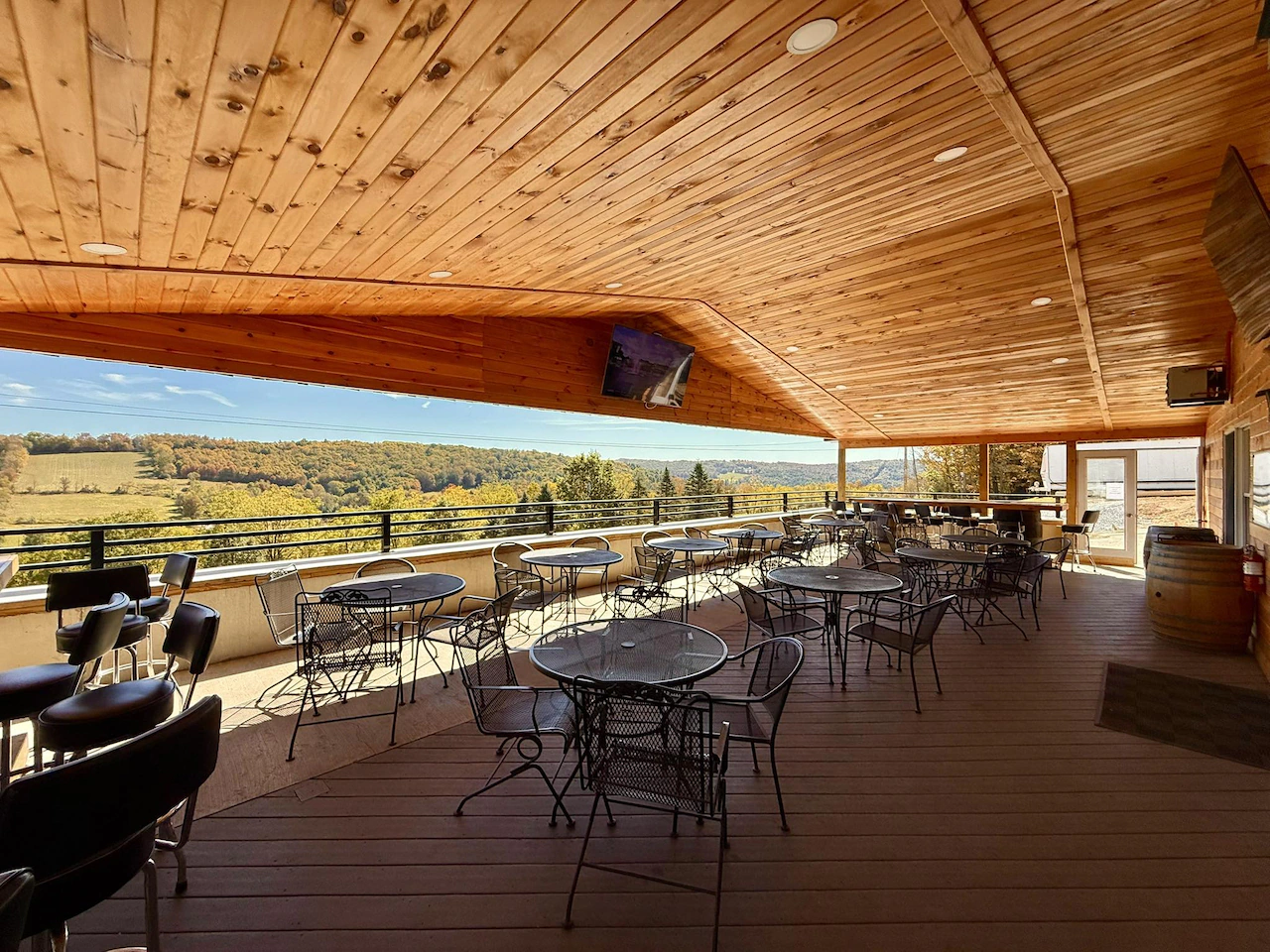Copyright Santa Rosa Press Democrat

Buffeted by adverse rulings in recent years, the owners of The Ruse, an upscale Healdsburg inn that has courted controversy, now find themselves on a bit of a roll. On September 23, the city’s Planning Commission approved The Ruse’s application for a permit to operate as luxury drug treatment center. In a separate matter, Healdsburg also agreed to pay $60,000 to The Ruse, two years after the owners of the business sued the city for wrongfully withholding public records it had requested. In addition to kicking off a modest win streak for The Ruse, that litigation shined a light on Healdsburg’s recent, expensive struggles to abide by government transparency and open-meeting laws. After purchasing the quaint inn at 891 Grove St. for $5 million in 2020, local developers Patrick and Jonathon Wilhelm, along with longtime Silicon Valley executive Craig Ramsey, poured $14 million into renovating the erstwhile Honor mansion, renaming it The Ruse. But their plans to make it a private club, with pickleball, bocce, a putting green, outdoor lounge and bar, failed to comply with zoning laws, and were quashed by the city. Twice. In the interim, the business operated as a bed and breakfast. But rather than keep fighting with the city over the grander plans, the Wilhelms pivoted. In a 5-1 vote on September 23, the Healdsburg Planning Commission approved The Ruse’s application for a conditional use permit to become a luxury, 13-bed substance abuse treatment facility catering, according to a proposal submitted to the city by The Ruse Treatment, LLC, to an “elite clientele” while “offering a discreet, personalized recovery experience in a serene resort style estate.” That vote came 16 days after Healdsburg was ordered by a Sonoma County Superior Court judge to pay $60,000 to The Ruse, for failing to produce some 1,800 public records attorneys for the business had requested from the city under the California Public Records Act. Healdsburg city attorney Samantha Zutler explained in an email that after providing “responsive documents” to The Ruse, the city “then identified an administrative oversight that resulted in some documents not being disclosed. “Unfortunately, under the Public Records Act, any failure by a City to provide all responsive records results in the City being responsible for the legal fees incurred by the requestor. The settlement reflects the Ruse’s fees related to the matter.” The $60,000 award to The Ruse was finalized shortly after Healdsburg agreed to pay $69,433 to Jonathan Eisenberg, a city resident and retired attorney who had alleged in a pair of lawsuits that City Council and city staff had failed to follow government transparency and open-meeting laws in other instances in 2024 involving two city initiatives. Eisenberg alleged in those lawsuits violations of California’s Brown Act, which requires the public’s business to be conducted in public. The Eisenberg settlement also called for the city to update its policies and add training for city staff and council members, to better address government transparency concerns. Eisenberg is concerned that some city officials remain unclear on that concept. He was surprised, upon discovering that Healdsburg had paid $60,000 to The Ruse. The city had “kept it a secret,” Eisenberg said, by failing to give notice of a closed City Council session to approve the payment, and also by failing to announce the vote in which the settlement was approved – “and thus has again violated the Brown Act.” Zutler pushed back against that allegation, stating that the Brown Act “only requires settlements to be immediately reported out of closed session if the other party has already signed the settlement agreement. That is rarely the case (and was not the case here).” On Oct. 15, Eisenberg sent the city a pair of “cease and desist” letters accusing it of further Brown Act violations. The first letter addressed the City Council’s alleged failure to publicly announce its approval of the $60,000 Ruse settlement. Zutler pointed out that the City’s agreement on June 30, 2025 to pay $60,000 “to resolve all issues concerning the Ruse’s claims to attorneys’ fees and costs” is a publicly available document, as is the amended judgment issued by the Court on Sept. 7. The City resolved the litigation “via a stipulated judgment that was subject to Court approval and available to anyone,” she wrote, “including Mr. Eisenberg, via the court system.” Eisenberg’s second letter addressed a February 2025 lawsuit filed by The Ruse which challenged Healdsburg’s “zoning determination” of the property. The City successfully challenged the validity of The Ruse’s claim, and the case was dismissed. Eisenberg alleges that Healdsburg’s failure “to agendize the closed session(s)” at which the City Council discussed that case with its legal counsel violated the Brown Act. “Mr. Eisenberg is mistaken,” said Zutler in an email Tuesday. “The Brown Act does not require the City Attorney to seek approval from the Council to defend every lawsuit served on the City. Nor is the City required to report out the details of direction given to staff (which would contravene the point of closed session),” she wrote. The law firm Burke, Williams & Sorenson “serves as the City Attorney and regularly defends the City in litigation; we do not need case-by-case authorization to do the job we were hired to do. “Mr. Eisenberg’s allegation that the City violated the Brown Act by not disclosing that it ‘approved’ its own City Attorney to handle a lawsuit against the City is confusing at best.” After settling Eisenberg’s two recent lawsuits against the city, she added, “We’d hoped that we could move on from these ‘gotcha’ scenarios and devote our resources to running the City – perhaps even with Mr. Eisenberg as an ally.” Jeff Kay, Healdsburg’s city manager, agreed with Zutler, and found it “telling,” he wrote in an email, that Eisenberg’s cease and desist letters “were sent to the press before the City had a reasonable opportunity to respond to them. Consistent with Mr. Eisenberg’s MO for some time now, it seems to be his tactic to solicit damaging coverage about the City.” In the meantime, a group of concerned neighbors of The Ruse – including City Council Member Ariel Kelley, who declined to comment for this story – have appealed the Planning Commission’s approval of a conditional use permit allowing The Ruse to operate as a substance abuse treatment facility. In their appeal, the neighbors have listed 13 “additional conditions of approval,” ranging from a request that the facility install ventilation in the kitchen “to minimize odor and noise to adjacent properties,” to prohibitions against “amplified sound” and renting the space out “to the community for any purpose.” The City Council will hear their concerns at its Nov. 3 meeting. Patrick Wilhelm did not respond, when asked by text if there was anything on the neighbors’ list of conditions that seemed like a dealbreaker. Meanwhile, the Wilhelms appear to be keeping their options open. The Ruse still has a license application pending before California’s Department of Alcoholic Beverage Control. You can reach Staff Writer Austin Murphy at austin.murphy@pressdemocrat.com. On X @ausmurph88.



